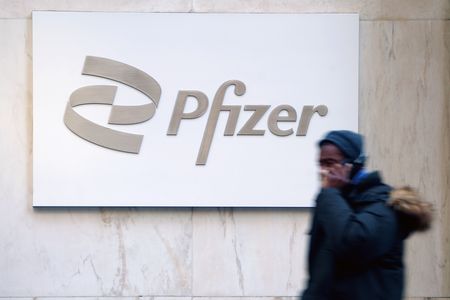(Reuters) -The Russian rouble rose in Moscow trading and was slightly weaker offshore on Thursday, with investors watching Russia-Ukraine peace talks and reports of foreign currency coupon payments on Russia’s sovereign debt.
Ukraine’s capital Kyiv came under renewed Russian shelling as the invasion entered its fourth week. Western sources and Ukrainian officials said Russia’s assault had stalled. Officials from both sides meanwhile met again for peace talks, but they said their positions remained far apart.
In financial markets, two market sources said some creditors have received payment, in dollars, of Russian bond coupons which fell due this week. This means Russia may for now have averted what would have been its first external bond default in a century.
“Even if this week’s payment is made, investors will need to then monitor the next upcoming payments as they may be treated differently,” JPMorgan said in a client note.
Dollar coupon payments on bonds with fallbacks that allow for payment in roubles are due next week and the following. A $2 billion bond matures on April 4.
The rouble rose 4.7% in Moscow to close at 103.15 per dollar, and gained 3.5% to end at 113.715 per euro. It is still down more than 20% against both currencies over the past four weeks.
On foreign exchanges, rouble bids were indicated at 96 per dollar and traded at 104, down 3.9%.
International outrage over Russia’s invasion of Ukraine grew on Thursday, as fighting continued. Western nations have imposed unprecedented sanctions against Russia in response, triggering the worst economic crisis in Russia since the fall of the Soviet Union in 1991.
Russia also laid down strict new rules for foreigners seeking permits to buy and sell Russian assets ranging from securities to real estate, a client memo by Citigroup showed, raising fresh concerns Western investors could face large write-downs.
The U.S. House of Representatives backed legislation on Thursday that would remove “most favoured nation” trade status for Russia and Belarus over the invasion of Ukraine, which would allow higher tariffs on imports from the two countries.
Russia’s annual inflation accelerated to 12.54% as of March 11, its highest since late 2015, while shortages and a sharp increase in sugar prices led the competition watchdog to start investigating major sugar producers.
The Moscow stock market stayed largely closed by order of the central bank, and will remain so for the rest of the week. Stocks last traded in Moscow on Feb. 25, after which the central bank imposed restrictions.
The central bank is now in focus as it will hold a rate-setting meeting on Friday. The bank is expected to keep the key rate at 20% and could shed more light on its future plans to regulate financial markets.
While forex transactions are limited, including with bank accounts and purchases abroad, Russians can still buy and sell forex online, although spreads are wide, indicating a lack of liquidity.
(Reporting by Reuters; editing by Jonathan Oatis)











